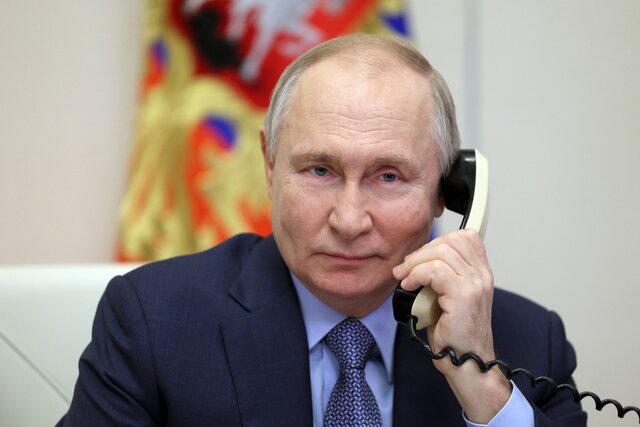Putin orders military to build integrated information network for battlefield coordination, but Z-bloggers say Russia has failed here, so far
Manage episode 455878799 series 3381925

On Monday, Vladimir Putin ordered Defense Ministry officials to create an “integrated information network connecting reconnaissance and strike assets across various levels of command.” The president said the Russian military already employs more than 6,500 “advanced defense industry developments” and credited the innovations with cutting “task assignment times” among troops almost in half. However, Putin’s initiative got a cool response from Russia’s pro-invasion blogosphere, provoking complaints that military developers have worked at a homegrown integrated information system for decades without success. Meduza summarizes iStories reporting on the story.
Journalists at iStories noted that Putin’s order echoes an integrated system described in a technical paper published in March, coauthored by Andrey Filin, an officer from the Joint Chiefs’ Main Communications Directorate, and other Defense Ministry personnel. The system incorporates technologies from various defense contractors, including Rostec subsidiaries, Kalashnikov, and the Narodny Front group.
iStories also reported that several Z-bloggers have criticized Russia’s military communications systems for being unusable on the battlefield despite more than two decades of development. For example, Boris Rozhin published an interview purportedly with Colonel Mikhail Teplinsky, chief of staff of Russia’s 20th Army in the Western Military District, where Teplinsky says the army’s existing integrated system suffers from various defects, including “the shittiest graphic editor you’ll ever see.”
Another prominent Z-blogger complained that Russia’s high-tech military equipment contends with insufficient battlefield testing, given the overly controlled trial conditions and officers’ reluctance to risk damaging the hardware and being held personally liable.
Additionally, military expert Viktor Murakhovsky argues that an effective integrated information network faces opposition from military commanders because a more transparent system would make it harder to lie to senior officers about losses in battle.
Without an adequate domestic system, troops have had to rely on public messaging services like Telegram and Discord (even though the latter is banned in Russia). “This is where operational information, target coordinates, and other vital data are exchanged. Absurd as it may be, it’s still more convenient, faster, and safer than radio communication using Baofeng [two-way] devices purchased by volunteers,” explained another Telegarm channel.
109集单集




